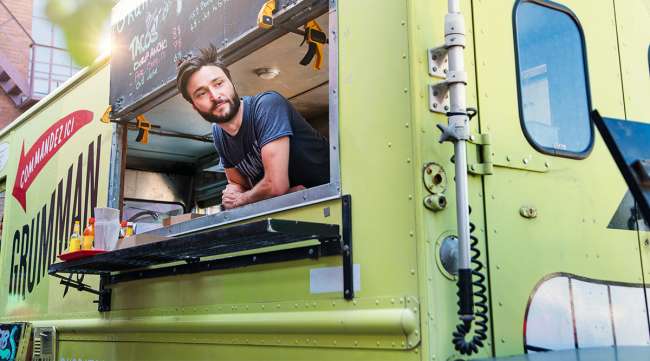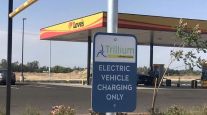Senior Reporter
Food Trucks Hit Snags in Securing Permits for Rest Stops

[Ensure you have all the info you need in these unprecedented times. Subscribe now.]
It isn’t always easy for truckers to get a solid meal on the road these days.
The “invisible enemy,” as the coronavirus pandemic has been dubbed by President Donald Trump, has disrupted so many routine practices, including shuttering some truck stop eateries.
That changed on April 3, when the Federal Highway Administration gave the green light for food trucks to temporarily operate at interstate rest areas during the COVID-19 emergency — seemingly making it easier for a truck driver to find a meal.
The problem is it really isn’t that easy to actually get the trucks to the rest areas, according to Matt Geller, president of the National Food Truck Association.

Geller
Arkansas, Ohio, Indiana, Florida, California, Arizona, Idaho and others have rushed to offer special permits to food truck operators during the health emergency. But Geller said the FHWA requirement that food truck operators first gain approval from states’ departments of transportation has caused roadblocks.
“Who cares if Ohio opens up spots, if they don’t have any sort of registry, schedule or way to get the information out to drivers. There has to be coordination. No state wants to do that,” he said.
“Don’t think about it as just a food truck location,” Geller added. “Think about it as a location that has to be a profitable spot.”
Matt Bruning, a spokesman for the Ohio Department of Transportation, said the state has issued more than 260 temporary permits to food truck operators allowing them to offer food at interstate rest areas.
“To coordinate 260 food trucks at 86 rest areas across the state would probably be a task we’d have to hire somebody to do on a daily basis,” Bruning said. “This wasn’t something we could plan for. So we didn’t want to delay anything by setting up a complicated system that would delay getting food to the truck drivers who need it.”
The state leaves the job of identifying where food trucks should locate with the national, state and local food truck associations, Bruning said.
“Really the idea here is to try to serve the drivers,” Bruning said. “The focus is about getting a hot meal to these truck drivers who are so essential to our economy. I know in some cases, the truck vendors are probably not going to make a lot of money doing this, because the traffic going across our state was down about 48% last week.”
“Are food trucks going to rest stops? Yes. But it’s not in a meaningful way that they can actually go out and make money,” Geller said. “I talked to a truck owner that went to a rest stop right outside of San Diego. He made $15 in one shift.”
Like the restaurant industry in general, the food truck industry has been hurting recently and is asking for help from the federal government. Before the virus hit, there were more than 23,000 food trucks in the United States with some 30,000 employees, generating more than $2 billion in annual revenue, according to the National Food Truck Association.
Now, Geller said that he’s hearing 30% to 40% of the food truck industry could be going out of business due to the pandemic.
“The COVID-19 pandemic has disrupted all of our lives, but the impact on the food truck industry is unprecedented,” the national association said in a petition seeking government financial assistance. “Thousands of small businesses are in jeopardy as many will not be able to make ends meet while they cannot work. Urgent and dedicated aid to our food truck industry and our employees is crucial, or too many will never recover.”

Mullings
It’s not just the food trucks that are losing money during the virus emergency. So, too, are the nation’s truck stops, said Lisa Mullings, president of Natso, the association representing truck stop owners and operators.
Mullings said Natso has asked that food trucks not be located near truck stops also selling food.
“We’re normally opposed to food trucks operating at rest stops,” Mullings said during an interview with Transport Topics Radio. “However, we know this is a time of federal emergency, and we’re not opposing the food trucks at the rest areas because it’s a temporary measure, and we have trucks doing extraordinary things in extraordinary times.”
Associate News Editor Dan Ronan contributed to this story.
Want more news? Listen to today's daily briefing:




